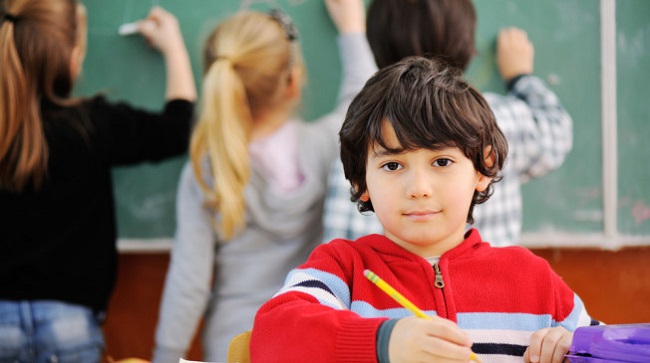Poor school performance a student can be caused by many factors so the solution or treatment should always be individualized.
When can we speak of “poor school performance”?
When academic results, translated into scores are not satisfactory. Cole notes, delivered at the end of the quarters, are low, ultimately.
We could clarify differences between poor school performance and the so-called “school failure”. In the latter case, in addition to obtaining poor academic performance, the student follows a troubled school, without adapting to school.
Children with poor school performance can be very different profiles: there are hard workers (although not find it productive), there are liabilities that end up not involved in the dynamics of class, and finally there are considerable problems adaptation and easy to get into conflicts.

Origins of educational underachievement
Situations of poor school performance can be very diverse, but we can find these factors that cause:
Physical factors
Children with specific difficulties, physical impairments, which can also bring cognitive difficulties. They have very specific impediments to acquire knowledge, such as hearing, vision, body integration …
They may suffer or suffered in their day diseases that reduced them the ability to care or have a syndrome.
This group also included students with poor school performance, leading to difficulties very basic (for example from traumatic births, diseases, hospital income to months of life …), of which no one has noticed at the time.
In these cases there is a clear cognitive deficit product of poor integration of information for early failures in the ways of receiving and processing the same. They are children who do not quite hear well, or do not quite see well, for example, but who have passed routine medical checks normally and sees capable and resourceful because they know very well offset its shortcomings.
In these situations early detection is essential, because otherwise may miss clueless or lazy children and receive unjustly reprimands for not having a different attitude toward education.
Thanks to advances in early detection, using disciplines such as optometry, the audio psycho phonology, motor skills, for example, now we can position ourselves with much more informed before children our attention for its poor performance in school.
These cases are usually studied in depth from multidisciplinary teams for relevant educational program. The student can grow at their own pace, in a different way from the norm, but it allows you to develop their potential. It is essential to family-school collaboration.
Psychological factors
Physically healthy but emotionally fragile children. His psycho-emotional, for various reasons, maturation has been affected. They have the skills, resources, but they can not apply because they are blocked.
This situation can be punctual (loss of loved one, major changes at home, separation from parents …) become chronic or something (bad atmosphere at home ever since).
In these cases, more complex than the above principle, the intervention of educational psychology service center, together with the work of student tutor, is essential to place the family and be able to help the student set path.
Among the “tags” that we can find would be depression, attention deficit disorder with or without hyperactivity disorder, adjustment disorder, autistic spectrum disorders (although syndromes Asperger often spectacularly bright academically), schizophrenia (applies more teenagers).
You may also like to read another article on StudyWatches: Educate without overprotect
Social factors
Cases of children from families with very low purchasing power and low cultural level. Small house are steeped in an environment that has nothing to do with living in the school, which may find it totally alien to their interests.
In these cases, a good intervention from social services can perform work with the whole family and school system, promoting the integration of these two worlds.
How you work with these children?
We have already been pointing in each case, but stressed here especially the need for the school system seriously contemplate besides academic knowledge:
- Education of emotions and expression.
- The growing taste for learning from significant and adjusted to the level of student learning.
- The development of social skills.
Information to reflect …
We know that more than a brilliant character was had by very bad student in school: Albert Einstein, Stephen Hawking, John Gurdon, among many others.



